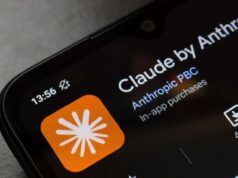
In a move that’s stirred a fair amount of controversy in both the tech and gaming worlds, an Xbox executive producer recently encouraged laid-off Microsoft employees to turn to Artificial Intelligence (AI) tools as they navigate the emotional and logistical challenges of job loss. The advice—offered by Matt Turnbull, an executive producer at Xbox Game Studios Publishing—was shared via LinkedIn but has since been deleted. It landed awkwardly, especially since it followed closely on the heels of major job cuts at Microsoft, which included roles within Xbox.
Key Takeaways:
- Xbox executive Matt Turnbull suggested laid-off Microsoft staff use AI for job search and emotional support.
- The advice came amidst significant job cuts at Microsoft, including within Xbox.
- Turnbull’s post faced strong criticism for being “tone-deaf” given the context of AI-driven job displacement.
- Microsoft is investing heavily in AI while simultaneously reducing its workforce, raising questions about AI’s role in employment.
Turnbull’s post went beyond a passing suggestion—it actually included specific prompts tailored for AI tools like ChatGPT and Copilot. The intention, at least on the surface, seemed supportive. He proposed ways these tools might help ease the “emotional and cognitive load” of job loss—everything from resume crafting and career planning to addressing imposter syndrome. Still, the reaction was swift and, frankly, pretty harsh. Critics called the message “plain disgusting” and overwhelmingly “tone-deaf,” especially given the climate of ongoing layoffs.
Microsoft, Xbox’s parent company, is pouring significant resources into AI—billions of dollars to be precise—aimed at developing advanced models and expanding its data center infrastructure. Yet, even as these investments balloon, the company has implemented several rounds of layoffs. Around 9,000 employees, or roughly 4% of Microsoft’s global workforce, were reportedly affected in the most recent cuts. Xbox wasn’t spared; studios closed, projects were scrapped. And it’s this simultaneous downsizing and tech expansion that’s fueling unease about AI’s broader impact on jobs.
The Context of AI and Employment
So, let’s take a step back. Artificial Intelligence (AI) refers to technologies that can perform tasks we usually associate with human intelligence—things like learning, reasoning, and problem-solving. When it comes to jobs, AI is a double-edged sword. On one side, you have advocates who say it can offload monotonous tasks and make room for more meaningful, creative work. On the other, critics argue it could lead to the disappearance of entire job categories, especially roles that are repetitive or highly structured.
Satya Nadella, Microsoft’s CEO, has made no secret of the company’s deepening commitment to AI. He’s described it as part of an “AI platform shift,” essentially framing it as the company’s next big leap. Internally, it’s been reported that Microsoft is pushing employees to not just use AI tools but, in some teams, to embrace them as part of performance evaluations. That alone signals a company-wide push to bake AI into every layer of its operations.
Public Reaction and Ethical Considerations
The backlash to Turnbull’s comments really speaks volumes about the emotional tightrope companies walk when championing new tech while cutting jobs. In gaming circles and far beyond, many viewed the advice as not just tone-deaf but borderline insulting. After all, it’s hard to ignore the irony: a tech giant lays off employees, touts its AI prowess, and then suggests those same people lean on AI to pick up the pieces.
There are, of course, much larger ethical conversations happening around AI in the workplace. These include fears about job displacement, concerns about privacy and data use, questions of algorithmic fairness, and demands for transparency. As AI grows more powerful and more integrated into daily workflows, the stakes rise. Making sure these tools are used responsibly—and ensuring that workers who are displaced or reshuffled aren’t left behind—has become not just a corporate challenge but a societal one.
AI holds real potential—there’s no denying that. It can streamline operations, spark innovation, and even open up entirely new career paths. But Microsoft’s recent moves serve as a reminder: the human element can’t be an afterthought. As companies rush to embrace AI, how they support their workforce through that transition will shape not just internal morale, but their public image and long-term credibility.
Frequently Asked Questions
Q1: What is AI, and how is it used in the tech industry?
A1: AI, or Artificial Intelligence, refers to computer systems that can simulate human intelligence to perform tasks like learning, reasoning, and problem-solving. In the tech industry, AI is used for various purposes, including automating processes, developing intelligent software, enhancing data analysis, and powering features like chatbots and predictive analytics.
Q2: Is AI causing job losses in the tech sector?
A2: The relationship between AI and job displacement is complex. While AI can automate routine tasks, potentially reducing the need for human workers in certain roles, it also creates new jobs in areas like AI development, data science, and AI system maintenance. Many believe AI will reshape jobs rather than eliminate them entirely, requiring workers to adapt and gain new skills.
Q3: How can individuals prepare for a job market impacted by AI?
A3: To prepare for an AI-influenced job market, individuals can focus on developing skills that complement AI, such as critical thinking, creativity, problem-solving, and emotional intelligence. Learning about AI tools and how to use them, pursuing education in AI or related fields, and engaging in continuous learning are also valuable strategies.










